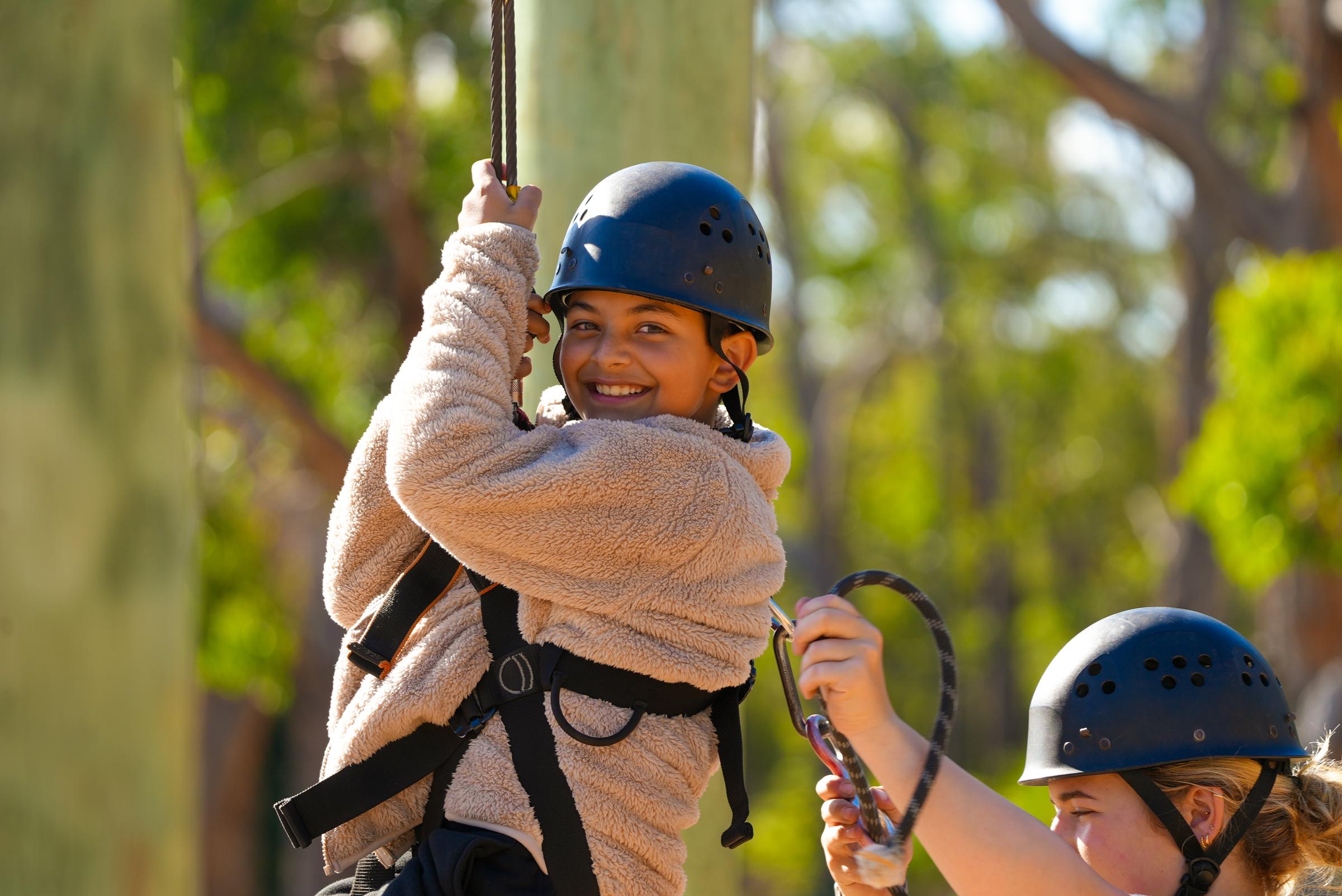Child Safety

The Pressures of Adolescence: Navigating Social Media and Healthy Masculinity
At Huntingtower, we are aware of the conversations sparked by the series Adolescence and the impact it has on how young people see themselves and interact with the world. The themes explored in the series, such as social comparison, peer pressure, identity struggles and digital culture, are challenges we actively address through our wellbeing and education programs.
Challenging Harmful Masculinity Norms
The series sheds light on the rigid expectations placed on boys, particularly the pressure to appear emotionally invulnerable, dominant or aggressive. We challenge these norms by encouraging boys to express emotions, seek support and redefine masculinity in healthy ways. In our wellbeing and pastoral care programs, students are given opportunities to explore what it means to be strong, kind and emotionally intelligent. I encourage you to view Ben Hurst’s TED Talk, Boys Won’t Be Boys, which is one of the many resources available to help foster open discussions about gender norms and self-expression.
Building Social-Emotional Skills for Life
A key challenge explored in Adolescence is the struggle to develop a strong sense of identity amidst external pressures. The series highlights how young people, particularly boys, often feel forced to adopt certain behaviours or suppress emotions to fit societal expectations. Through our Social and Emotional Learning (SEL) program, students build self-awareness, relationship skills and resilience. These competencies help them manage social pressures, recognise their self-worth beyond social media validation and make confident, values-based choices.
Understanding Social Media and Online Behaviour
The series highlights how digital culture shapes self-esteem, particularly the dangers of constant comparison and the unrealistic standards set by influencers and peers. We embed cyber safety education across year levels, ensuring students understand how to engage positively online, critically assess content and set healthy boundaries. Resources sourced from evidence-based and reputable organisations such as eSafety and Common Sense Education supports students in navigating online risks, dealing with digital peer pressure and maintaining respectful communication.
Consent and Respectful Relationships Education
Adolescence also explores challenges in relationships, including peer pressure around intimacy and the difficulty in establishing clear boundaries. Our focus on Consent and Respectful Relationships Education teaches students about healthy interactions, personal boundaries and the importance of mutual respect. Organisations such as Consent Labs equip students with the skills to build positive, respectful relationships and challenge harmful gender stereotypes that often place pressure on both boys and girls to conform to unrealistic expectations.
How Families Can Help
Parents play a key role in reinforcing these lessons. Encouraging open conversations about social pressures, modelling balanced social media use, and promoting emotional intelligence at home can help students build confidence and resilience. Families can also support young people by helping them critically analyse the messages they receive from social media and popular culture, reinforcing the idea that they do not need to fit into narrow societal expectations to be valued.
Strategies for Conversations at Home:
- Ask Open-Ended Questions – Instead of yes/no questions, try: “How do you feel when you see certain posts on social media?” or “What do you think about the way boys/girls are portrayed in media?”
- Share Your Own Experiences – Talking about times you felt pressured to fit in can make it easier for young people to open up.
- Use Media as a Discussion Starter – Watching age-appropriate shows together and discussing the characters’ experiences can provide a natural way to talk about difficult topics.
- Encourage Critical Thinking – Ask questions like “Do you think social media shows real life?” or “What makes a healthy friendship/relationship?” to help students analyse and question online and social influences.
- Model Healthy Online Habits – Show balanced screen use, taking breaks from devices, and discussing what you see online in a thoughtful way.
- Reassure Them of Their Worth – Regularly remind your child that their value is not determined by likes, followers, or fitting into a specific image.
Final Thoughts
The pressures of adolescence in a hyper-connected world are complex, but with the right support, students can thrive. By embedding social-emotional learning, consent education, cyber safety and inclusivity into our school culture, we empower students to navigate these challenges with confidence. Families and schools together play a vital role in helping young people develop resilience and a strong sense of self, ensuring they feel supported in becoming who they truly are rather than who society tells them they should be.
Child Safety at Huntingtower
At Huntingtower we are committed to providing a nurturing school environment where our students are safe and feel safe, where their participation is valued, their views respected, and their voices are heard about decisions that affect their lives. Our child safe policies, strategies and practices are inclusive of the needs of all students. The welfare of each child and young person studying at Huntingtower is the School’s paramount concern. Huntingtower has a zero-tolerance policy for child abuse and is committed to promoting child safety.
Everyone employed or volunteering at Huntingtower has a responsibility to understand the important and specific role they play individually and collectively to ensure a child safe culture in which the wellbeing and safety of all students is at the forefront of all they do and every decision they make. We encourage any student who feels unsafe to contact one of the School’s Child Safety Champions. Huntingtower’s Child Safety email address for parent and community feedback – ChildSafety@huntingtower.vic.edu.au. We look forward to hearing from you.
Mr Dean Owens
Head of Wellbeing & Learning Enrichment

